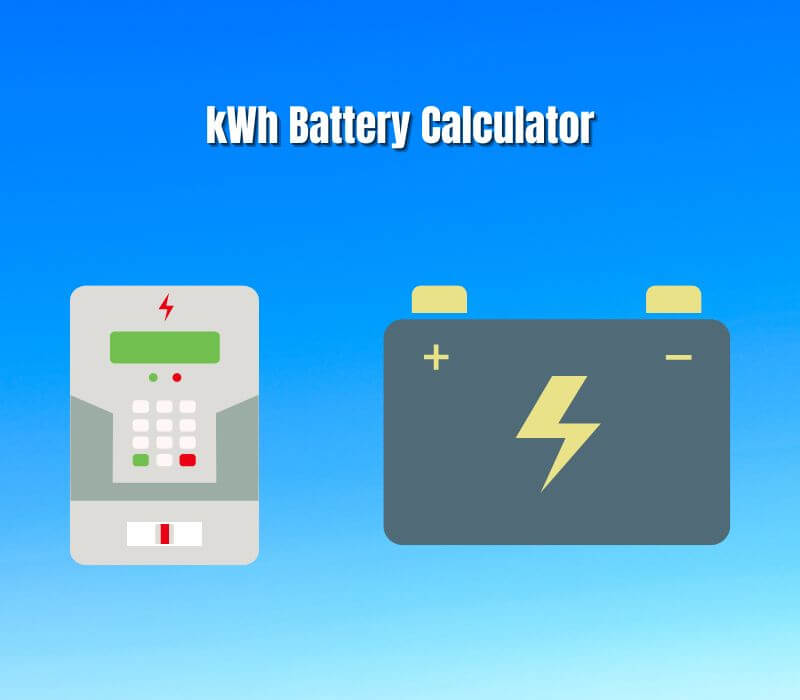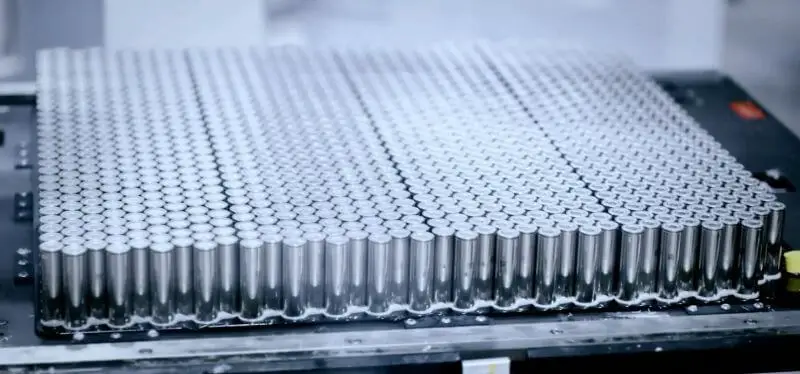How Many Kilowatts are in a Car Battery? (Reply is Here)
The average car battery is made up of six cells that produce 2.1 volts each for a total of 12.6 volts. A lead-acid car battery contains sulfuric acid and lead, which interact chemically to create the electricity needed to start your engine.
A car battery is a device that stores energy in order to power a vehicle. The amount of power it can store is measured in kilowatts, and most batteries range from around 30 to 100 kilowatts. The size and type of battery you need will depend on the make and model of your car, as well as how often you plan to use it.
If you only use your car for short trips, you may not need as much power as someone who uses their car for long distances. There are many different types of batteries on the market, so be sure to do your research before purchasing one.
How Many kWh in a Lead-Acid Car Battery?
A lead-acid car battery typically contains between 30 and 50 kWh of energy. The actual amount of energy stored in a particular battery depends on its size and design, as well as the temperature and state of charge of the battery. A fully charged battery or a fully charged nest thermostats will have more energy than one that is only partially charged.
Lead-acid batteries are commonly used in cars because they are relatively inexpensive and have a long life span. However, they are not very efficient compared to other types of batteries, such as lithium-ion batteries. As a result, lead-acid batteries are typically only used to power a car’s starter motor and accessories, not its electric drivetrain.
Average EV Battery Capacity kWh
If you’re shopping for an electric vehicle (EV), it’s important to know about the battery capacity. This measures how much energy the battery can store, and is usually expressed in kilowatt-hours (kWh). The higher the number, the longer the EV will be able to travel on a single charge.
The average EV battery capacity is around 24 kWh. This means that, on average, EVs can travel about 100 miles on a single charge. However, there is considerable variation among different models of EVs.
Some have larger batteries that allow them to travel further on a single charge than others. When considering battery capacity, it’s also important to keep in mind that range will vary depending on factors like weather conditions and driving style. So, even if an EV has a large battery, it may not be able to travel as far as you want or need it to in all situations.
How Many kWh in a Battery?
If you’re wondering how many kilowatt-hours (kWh) are in a battery, the answer depends on the type and size of the battery. For example, a lead-acid car battery typically contains around 50 kWh, while a lithium-ion battery used in electric vehicles can contain up to 100 kWh. The amount of power that a battery can store is important to consider when determining how long it will last.
For instance, a lead-acid car battery will only provide a few hours of power, whereas a lithium-ion battery can last for days or even weeks. It’s also worth noting that the capacity of batteries tends to decrease over time – meaning that they won’t be able to hold as much charge as they did when they were new. This is why it’s important to regularly check the level of charge in your batteries and replace them when necessary.
Electric Vehicle Battery Capacity 44.5 kWh
Electric vehicles are becoming increasingly popular as technology improves and costs come down. One important consideration for EV ownership is battery capacity, which determines how far the vehicle can travel on a single charge. The average electric car has a battery capacity of around 44.5 kWh, which gives it a range of around 200 miles.
However, there are some EVs with much larger batteries that can travel 400 miles or more on a single charge. The size of an EV’s battery also affects its price tag. Generally speaking, the larger the battery, the more expensive the car will be.
This is because bigger batteries require more raw materials and take longer to produce. However, as battery technology continues to improve, it’s likely that prices will come down across the board, making EVs even more affordable for consumers.
kWh Battery Calculator

If you are considering purchasing a battery for your home, it is important to know how much power you will need. The amount of power you need will depend on several factors, including the size of your home, the number of appliances you have, and your electricity usage. A good way to estimate the amount of power you need is to use a kWh battery calculator.
There are many kWh battery calculators available online. Simply enter the information about your home and appliances into the calculator and it will give you an estimate of the amount of power you need. It is important to note that this is only an estimate and your actual power needs may be different.
Once you have an idea of how much power you need, you can start shopping for batteries. There are many different types and sizes of batteries available on the market today. You will want to find a battery that is able to meet your specific needs.
When shopping for batteries, it is important to compare prices between different brands and models. You may also want to read reviews from other customers before making a final decision.
Tesla Car Battery kWh
When it comes to electric cars, there’s no doubt that Tesla is leading the pack. The company’s Model S is not only the best-selling luxury car in the United States, but it’s also one of the most popular EVs on the market. And a big part of that success is due to Tesla’s impressive battery technology.
The Model S uses a large 85 kWh battery pack that gives it an EPA-rated range of 265 miles. But what’s even more impressive is how fast this car can charge. Using Tesla’s Supercharger network, the Model S can get back up to 80% charge in just under an hour.
That means if you’re on a long road trip and need to recharge, you can do so quickly and easily.
But how does Tesla’s battery technology compare to other EVs on the market? Well, according to Consumer Reports, the Model S has one of the longest ranges and fastest charging times of any EV currently available.
In fact, its range and charging speed are both better than any other luxury EV on the market.
So if you’re looking for an electric car with great range and quick charging times, thenTesla is definitely worth considering.

Electric Car kWh Per Km
Electric cars are becoming increasingly popular as technology improves and costs come down. But how much electricity do they use? In general, electric cars use about 0.2 – 0.3 kWh per km.
This means that if you drive 100 km in an electric car, you will use between 20 and 30 kWh of electricity. Of course, this varies depending on the size and efficiency of the car, as well as whether you are using air conditioning or heating. In general, smaller and more efficient cars will use less electricity than larger ones.
So how does this compare to petrol cars? Well, a typical petrol car will use about 8-10 litres of fuel per 100 km travelled. Using a rough conversion rate of 1 litre of petrol to 9 kWh of energy, we can see that petrol cars use about 72-90 kWh per 100 km travelled.
This means that electric cars are using around one-quarter to one-third of the amount of energy that petrol cars use. This is good news for the environment and your wallet! Electric cars produce no emissions themselves (although there are emissions associated with generating electricity), so they help to reduce pollution and climate change.
And because they use less energy, they cost less to run – saving you money on fuel costs.
60 kWh Battery Price
Electric cars are becoming more and more popular, and with that comes a demand for better and more affordable batteries. In the past, electric car batteries have been quite expensive, but that is slowly changing. The Tesla Model S 60 kWh battery pack currently retails for about $13,000.
This is still quite a bit of money, but it is a significant decrease from the prices of just a few years ago. There are many factors that have contributed to this decrease in price.
| One is simply economies of scale | As production of electric cars has increased, so has production of batteries, and this has led to lower prices overall. |
| Another factor is improvements in technology | Battery packs are now being made with more efficient cells that require less raw materials to produce. Of course, there are still some challenges when it comes to electric car batteries. |
| One is range anxiety | Many people are hesitant to switch to an electric car because they worry about running out of charge while on the road. |
However, as battery technology continues to improve, this should become less and less of a concern. Additionally, charging infrastructure needs to continue to expand in order for electric cars to be truly viable options for drivers. Overall, though, it’s clear that electric cars are becoming increasingly affordable thanks to advancements in battery technology.
If you’ve been considering making the switch to an electric car but have been put off by the cost of batteries in the past, now might be the time to reconsider!
Frequently Asked Question
How Many kW is a Regular Car Battery?
A regular car battery is approximately 12 volts and 60 Ah, which is 720 watt-hours. This means that a regular car battery can provide 1 kWh of power for about an hour.
How Many Watts is a 12 Volt Car Battery?
A 12 volt car battery is typically around 50-60 amps. This means that it takes up about 6-8 watts of power.
Can You Power a House With a Car Battery?
A car battery can be used to power a house, but it is not the most efficient way to do so. A car battery has a limited capacity and will need to be recharged regularly. Additionally, using a car battery to power a house will put a strain on the battery and may shorten its lifespan.
How Many Kilowatt-Hours is a 12 Volt Battery?
A 12-volt battery is a lead-acid battery that delivers 12 volts of direct current (DC) power. The capacity of a 12-volt battery is measured in ampere-hours (Ah). One Ah is the amount of current that a battery can deliver for one hour before it needs to be recharged.
Most car batteries are between 40 and 60 Ah.
Conclusion
This blog post is all about car batteries and how many kilowatts are in them. The author starts off by talking about how most people don’t know much about car batteries, and how they work. He then goes on to explain that a battery is made up of cells, and each cell has a certain amount of power.
To find out how many kilowatts are in a battery, you need to multiply the voltage of the battery by the capacity of the battery. The author gives an example of a typical car battery, which has 12 volts and 100 amp-hours. This means that there are 1.2 kilowatts in this particular battery.
Learn More:
- How Many Watts in a Cell Phone Battery?
- What Happens If You Charge a 12V Battery With a 6V Charger?
- Can You Charge 12V 7Ah Battery?
- How Many Watts Does a 12-Volt Battery Charger Use?
Resources:
